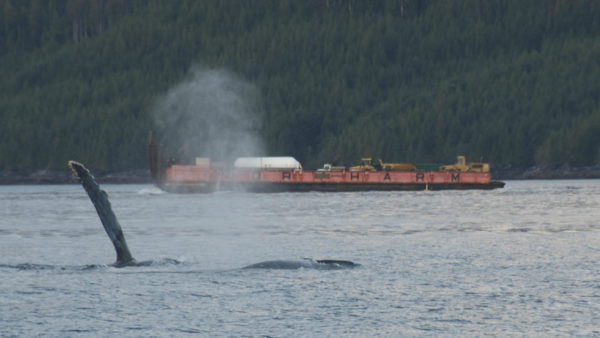Significant advances for wildlife imminent. Here’s how to get there
This fall, the Canadian government is expected to enact sweeping changes to fundamental environmental legislation. It comes after more than a year of consultation with stakeholders from all parts of the country, including WWF-Canada. What the government heard and the direction they’re headed is summarized in the recently released Environmental Regulations and Review paper.

Why this is important
During the past decade, regulations governing environmental protections have been rolled back. In 2012, for example, the new Navigation Protection Act placed priority on ensuring infrastructure and industrial uses were approved in major waterways and removed the need to consider environmental protection for the vast majority of rivers and lakes in Canada.
The current government launched a review to regain public trust and better protect the environment, among other goals, focusing on reforming the Canadian Environmental Assessment Act, modernizing the National Energy Board, restoring lost protections and incorporating modern safeguards under the Fisheries Act and the Navigation Protection Act. Together, these acts are powerful tools to determine the health of ecological systems throughout Canada in the face of potentially destructive pressures from human activities.
The discussion paper
WWF-Canada seized this once-in-a-generation opportunity to make important contributions through our public testimony to expert panels and standing committees, written submissions, coalition statements with other environmental NGOs, communication to federal government ministers and other important decision-makers.
The good, the bad and the ugly of the review
The good
We are pleased with restored habitat protections under the Fisheries Act. Many of WWF-Canada’s suggestions are apparent in proposed changes to the act and we’re happy that the government heard and responded to our concerns.
The bad
The review of several pieces of environmental legislation at once offers the opportunity to align decision-making around core outcomes, including carbon reductions in Canada’s climate plan. The discussion paper fails to make these vital connections, leaving cross-referencing requirements out of the Canadian Environmental Assessment Act as well as the decisions of the National Energy Board.
The ugly
The Navigable Waters Protection Act — overwritten in 2012 by the Navigation Protection Act — was an incredible piece of environmental legislation with a focus on protection in tandem with navigation. The proposed changes do not suggest that the protections lost in 2012 will be restored. Left out is consideration of environmental impacts when a proposal might impede navigation.
Have your say
We’ve told the government how the reforms must be guided by science. Now it’s your turn. Visit here to add your voice to the Environmental and Regulatory Reviews. Let the government know by Mon., August 28 that the legislation needs to be stronger than currently proposed, including restoring lost protections and linking all legislation-driven decisions to climate-change targets and sustainability goals.
Mary MacDonald is WWF-Canada’s chief conservation officer.
